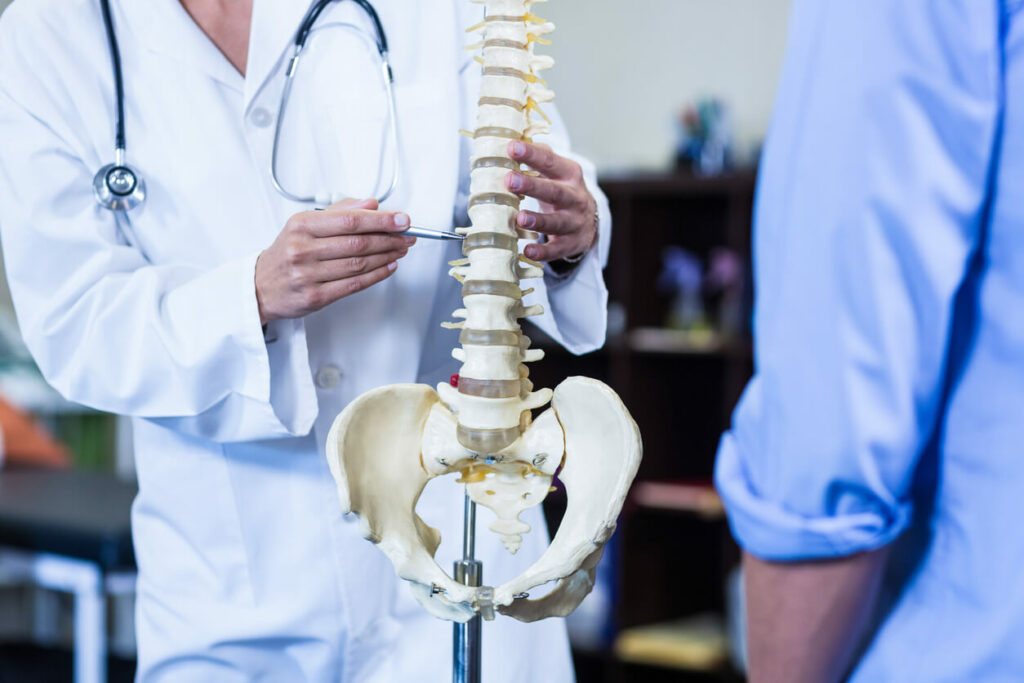
Back pain and spine-related issues affect millions of people, and seeking proper care is essential. While many minor pains resolve with rest or over-the-counter treatments, some may require advanced care.
Let us understand when visiting a spine specialist is necessary, what conditions they treat, and the benefits of seeking professional care.
What Is a Spine Specialist
A spine specialist is a medical professional with advanced training in diagnosing and treating conditions affecting the spine. These specialists can include orthopedic doctors who focus on the musculoskeletal system.
Whether you are dealing with chronic back pain, herniated discs, or neck pain, these professionals are equipped to provide tailored care.
Signs You Should Visit a Spine Specialist
Not all back or neck pain requires immediate treatment from a spine specialist. However, there are specific signs that suggest it might be time to consult one. These include the following.
Persistent Pain Lasting More Than Six Weeks
If your back or neck pain lingers for more than six weeks despite rest or over-the-counter medications, you should consider consulting a spinal specialist near you. Persistent pain could indicate underlying issues that might require advanced care.
Sudden, Severe Pain After an Accident
Pain that occurs after a fall, car accident, or other traumatic event should not be ignored. Injuries such as fractures, ligament damage, or disc problems need immediate evaluation by a spine specialist near you.
Numbness, Tingling, or Weakness in the Limbs
Symptoms like numbness, tingling, or weakness in your arms or legs are often linked to nerve compression or spinal cord problems.
These symptoms require prompt attention from a neck and spine specialist to prevent further complications.
Radiating Pain Into the Arms or Legs
Sciatica and similar conditions often cause pain to radiate into the limbs. If you experience this type of pain, a spine specialist can identify whether a herniated disc or another issue is the source.
Difficulty Standing, Sitting, or Walking
If daily activities such as standing, sitting, or walking become challenging due to back or neck issues, professional care is vital. Do not try to “push through” such symptoms, as they can worsen over time.
Loss of Bowel or Bladder Control
This is a medical emergency. If you experience bowel or bladder dysfunction accompanied by back pain, seek immediate care from a spine specialist or emergency medical services.
This could indicate conditions like cauda equina syndrome, which requires urgent treatment.
Common Conditions Treated by Spine Specialists
A spine specialist can diagnose and treat a range of conditions affecting the back and neck. Here are some of the most common ones.
- Herniated Discs: When the cushioning material between vertebrae pushes out, it can press on nearby nerves and cause pain.
- Spinal Stenosis: The narrowing of the spinal canal, which can lead to pain and numbness, especially in the legs or lower back.
- Scoliosis: A curvature of the spine that may require bracing or surgery, depending on its severity.
- Degenerative Disc Disease: Age-related wear and tear on the spinal discs.
- Sciatica: Pain that radiates from the lower back into the legs, often caused by nerve compression.
- Spinal Fractures: Usually the result of trauma or conditions like osteoporosis that weaken the bones.
These conditions often require specialized treatment plans, including physical therapy, medication, and in some cases, surgery.
Diagnosis and Treatment Options
When you visit a spine specialist, your appointment typically begins with a detailed assessment. This may include the following steps.
Comprehensive Assessment and Imaging
The specialist will review your medical history and discuss your symptoms. They may also request imaging tests like an X-ray, MRI, or CT scan to identify the root cause of your pain.
Non-Surgical Treatments
Many spinal problems can be treated without surgery. Spine specialists often recommend the following non-invasive treatments first.
- Physical Therapy: Exercises to improve flexibility and strengthen supporting muscles.
- Medication: Anti-inflammatory drugs (like ibuprofen) and, in some cases, stronger pain relief options may be prescribed.
- Epidural Steroid Injections: These injections aim to reduce inflammation and pain around the affected nerve.
When Surgery May Be Necessary
If non-surgical treatments do not alleviate your symptoms, surgery may be required. Common surgical options include the following.
- Spinal Fusion: Stabilizes two or more vertebrae to reduce pain caused by movement.
- Decompression Surgery: Relieves pressure on the spinal cord or nerves by removing damaged or overgrown tissue.
- Disc Replacement: Replaces a damaged disc with an artificial one.
Surgery is typically considered a last resort and only when other treatments fail to provide relief.
Spine Specialist in West Jersey
Living with unresolved back or neck pain can impact every aspect of your life. Whether it has persisted for weeks or resulted from a specific injury, consulting a spine specialist can make a significant difference in your quality of life.
At Orthopedic Associates of West Jersey, our experienced orthopedic specialists are here to provide comprehensive orthopedic care tailored to your needs. From non-invasive treatments to advanced surgical options, we offer the expertise and attention required to get you back to your best.
Take the first step toward lasting relief by calling us today at (973) 989-0888 or fill out our appointment request form.
We look forward to serving you!

